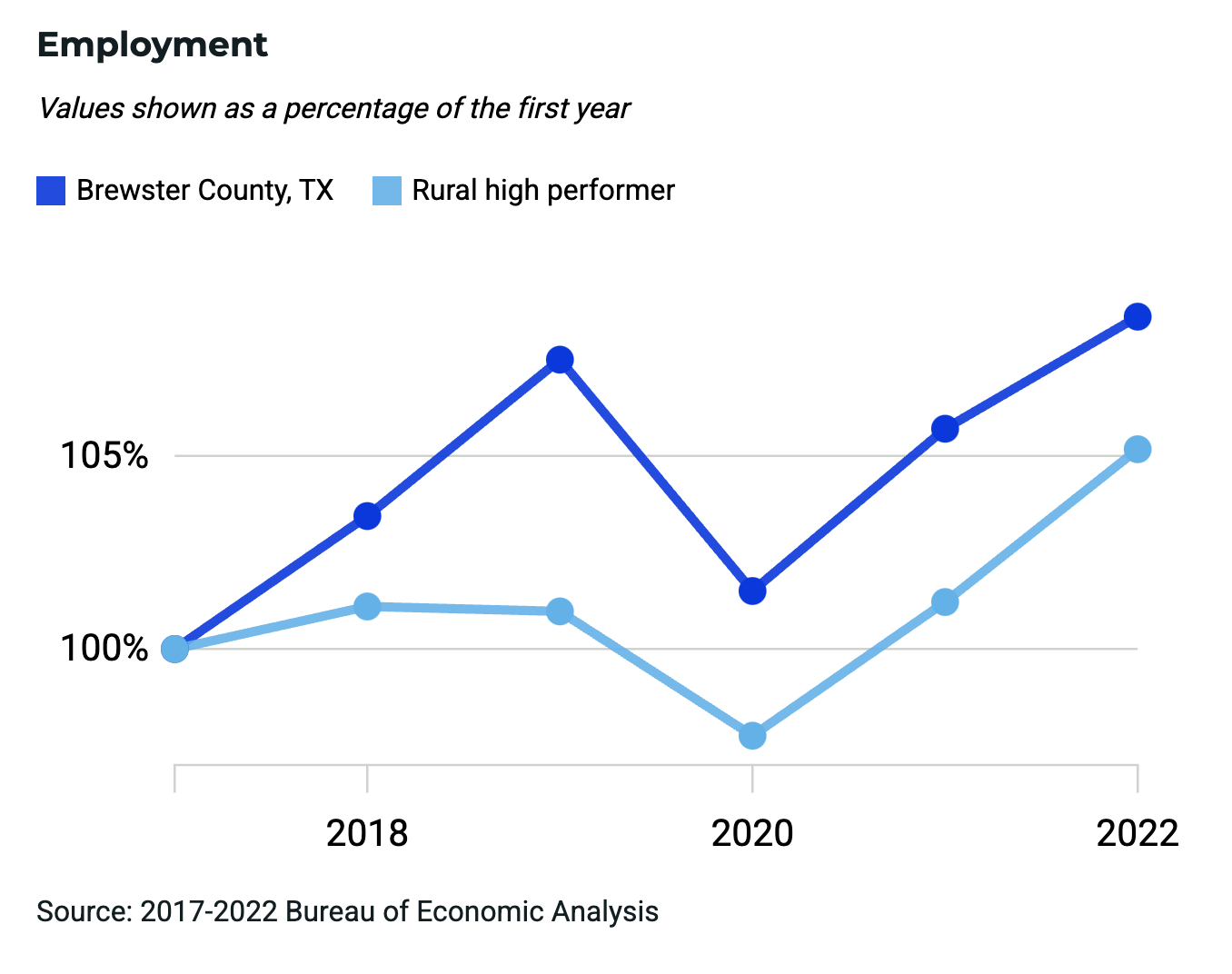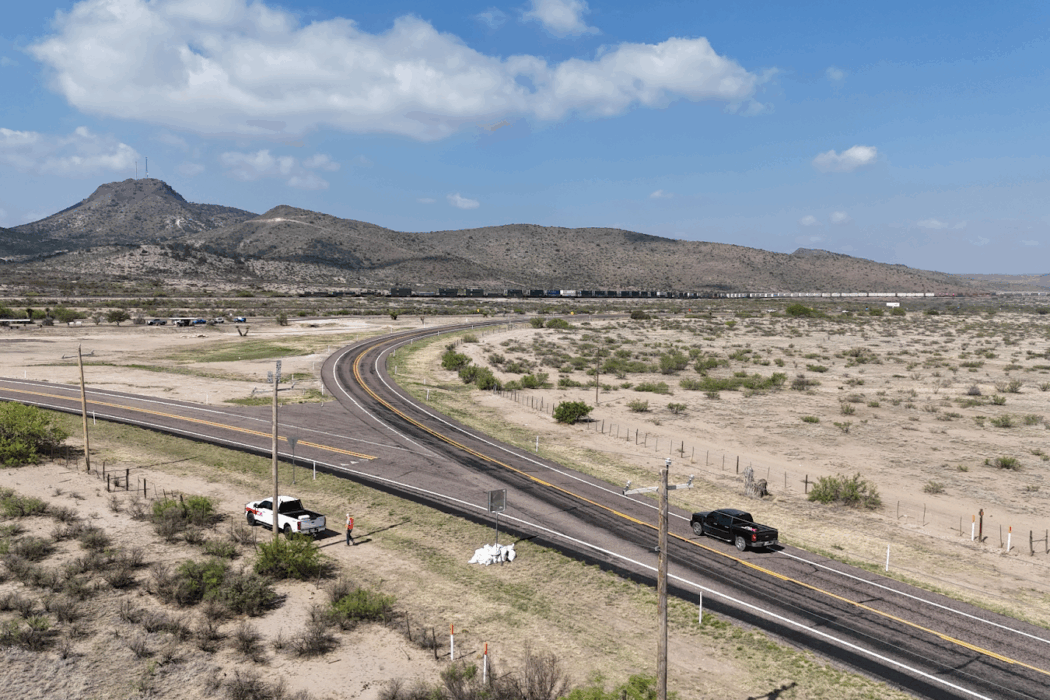Big Bend Telephone is building a connected future in rural West Texas
Brewster County, Texas needed much faster internet service to match its people and talent with economic opportunity in the digital age. Big Bend Telephone, a third-generation family-owned provider, is stepping up to close that gap.
Big Bend Telephone is transforming connectivity in one of the most remote regions in Texas
Brewster County is Texas’s largest by land area, encompassing over 6,000 square miles of desert terrain, remote towns, and vibrant cultural hubs like Alpine and Terlingua. The region is known for its artists and musicians, the natural beauty of Big Bend National Park, and Sul Ross State University. Like many rural areas, Brewster County needed much faster internet service to match its people and talent with economic opportunity in the digital age.
Big Bend Telephone, a third-generation family-owned provider, is stepping up to close that opportunity gap. Big Bend Telephone’s 18,000-square-mile footprint stretches along the U.S.–Mexico border, with infrastructure spanning Brewster and Presidio Counties. Today, they are not only building high-speed internet to remote places, but helping communities make the most of that connectivity by investing in digital skills, education, and workforce initiatives.
For BBT, the individual person and their particular connectivity needs and goals is the heart of this work. As General Manager Rusty Moore shared, “Our foundation is all about relationships; we reach out to local leaders and ask, what do you need? What are you struggling with?”
Big Bend Telephone delivers high-speed fiber to one of the hardest-to-serve regions in the country
Big Bend Telephone has a long track record of pioneering communications technology in the region, from microwave networks to early fiber builds. Today, it is continuing that legacy by offering gigabit service across most of its territory, including 97% fiber coverage in the southern half of Brewster County through a USDA ReConnect-funded project. This has pushed the county ahead of national averages for fiber access – an impressive feat for the biggest county in Texas by land mass.
The company pairs infrastructure with hands-on efforts to support adoption, tailoring outreach to residents’ needs and comfort levels with technology. From helping residents sign up for telehealth to teaching them how to stream Spanish-language content, Big Bend Telephone’s technicians act as digital ambassadors. Not only are these efforts important for bringing new customers onto the network, they are essential to making sure everyone has access to present day opportunities, which is good for the region. As Joe Shuster, County Judge in Pecos County, noted, “We appreciate Big Bend Telephone’s efforts to reach all demographics and underserved areas.”
Big Bend Telephone’s network is fueling a surge in business activity and remote work readiness
As highlighted in the Beyond Connectivity report from the Center on Rural Innovation, rural places see the greatest economic returns from broadband when infrastructure is combined with high adoption rates and community-rooted providers. That combination supports remote work, entrepreneurship, and industry diversification, all of which are starting to take root in Brewster.
Broadband is most valuable when people use it to improve their lives, learn, access healthcare and jobs. In Brewster County, new infrastructure is unlocking new opportunities for quality of life and economic activity, as residents are using broadband to launch businesses and work remotely. As shown in Figure 1, business applications in Brewster County have surged since 2021, outpacing even the nation’s top rural broadband adopters. These ‘rural high performers’ represent counties in the top 20% nationwide for broadband adoption.

Contributing to this momentum are major investments in the port of entry in Presidio. As this port of entry is being significantly expanded and poised to see significantly more international trade and traffic, the community may become a much bigger economic driver for the region. Big Bend Telephone has been there every step of the way, laying fiber in anticipation of growth and ensuring the infrastructure is in place before businesses and residents arrive.
Brewster County Judge Greg Henington underscored how Big Bend Telephone’s local presence accelerates responsiveness and removes friction during periods of growth like this. “It’s nice that we have a team right here in town — if we have any issue, we can call and get it worked out quickly. I don’t think we would have that luxury if they were not local.” Big Bend Telephone’s proactive fiber deployments in Presidio have set the stage for a well-connected community ready to support logistics, hospitality, and other industries expected to follow the expansion.
At the same time, Big Bend Telephone continues to collaborate with Sul Ross State University and area high schools to strengthen the local workforce and expand access to remote learning opportunities in advance of the anticipated new workforce needs in the county.
As Moore described, “We’re giving people the opportunity to invest in their communities.” These investments are beginning to show up not only in entrepreneurial activity, but in broader workforce trends.
One signal of this shift is Brewster County’s rising share of jobs in tradable services, which are everything from remote workers in fields like digital media, consulting, and professional services, to jobs in local firms like Alpine Ala Carte that sells marketing and branding services to businesses around the state. Tradable service industries tend to be knowledge-driven and well-paying, and their growth suggests that more residents are using broadband to start or sustain businesses that aren’t tied to geography.

Tradable services often employ people with college degrees and require strong digital infrastructure. However, many of these jobs — particularly in fields like IT, cybersecurity, and digital support — are becoming accessible through nontraditional education pathways. Online certificate programs and remote training are helping people without four-year degrees build careers in tradable services. For rural adult learners, access to high-speed internet is especially critical. Broadband removes geographic barriers and enables participation in flexible, affordable training programs that can open doors to new industries.
In Brewster County, the growth of these knowledge-driven sectors is no coincidence. Despite its remote geography, the county outpaces both Texas and the nation in educational attainment, with over 45% of residents holding a bachelor’s degree or higher. This local talent base, combined with high-speed broadband, is making it possible for residents to serve clients across the country and participate in industries that aren’t tied to geography.
As Figure 3 shows, the county has a percentage of bachelors degrees that significantly outpaces the state, and enables a higher concentration of digitally enabled and economically resilient work.

Big Bend Telephone is helping residents turn this educational advantage into local opportunity. In Alpine, their fiber network supports Sul Ross State University’s remote operations and allows faculty and students to teach, learn, and collaborate online. The university offers online and hybrid programs designed to meet growing technology training needs, including a cybersecurity concentration available through the Alpine campus. This connectivity doesn’t just serve traditional students, it’s also a gateway for adult learners seeking new skills. For residents balancing jobs, caregiving, or rural distances, reliable broadband makes it possible to pursue online certifications and workforce training that can lead to tech jobs or other careers in the tradable services economy.
But it’s not just higher-skilled sectors driving change. Overall employment growth in Brewster County has been strong and sustained, outpacing rural high performers since 2020 (Figure 4). This reflects a broader economic shift, more residents are working, more businesses are hiring, and the foundations of a resilient local economy are taking shape.

As new industries take root and digital participation expands, Big Bend Telephone’s early investments are providing an essential foundation to the region’s next chapter.
Big Bend Telephone doesn’t just serve Brewster County, it is part of the community
Big Bend Telephone supports Viva Big Bend, a multi-day music and food festival that brings residents and visitors together across the region. Staff members volunteer to serve BBQ to over 600 people. The event is a favorite among employees and helps Big Bend Telephone maintain its close ties to the communities it serves.
As Judge Henington noted, “Everyone takes it for granted that we have this team and the service they provide right here in our backyard. They’re visible and highly involved in the community.”

Their outreach goes beyond events. The company partners with local libraries, schools,and healthcare providers to meet residents where they are. Big Bend Telephone’s model is personal, consistent, and built for impact.
Public officials across the region recognize Big Bend Telephone’s work and value to the community. As Curtis Evans, County Judge of Jeff Davis County, wrote: “We know the lack of this essential infrastructure can hold back our community…we are very pleased that Big Bend Telephone has decided to deploy high-speed internet in our community, and we enjoy working with them.”
Big Bend Telephone is laying the groundwork for long-term growth
From early fiber deployment to personalized adoption strategies, Big Bend Telephone is creating a model for what rural broadband should look like – reliable, affordable, and deeply human. Its work demonstrates that broadband is not just about speed. It’s about sustaining families, growing businesses, and ensuring rural communities like Brewster County don’t just get connected, they get ahead.
Thanks to Big Bend Telephone’s investments, Brewster County is emerging as a rural success story: more resilient, more dynamic, and more ready for the future.
